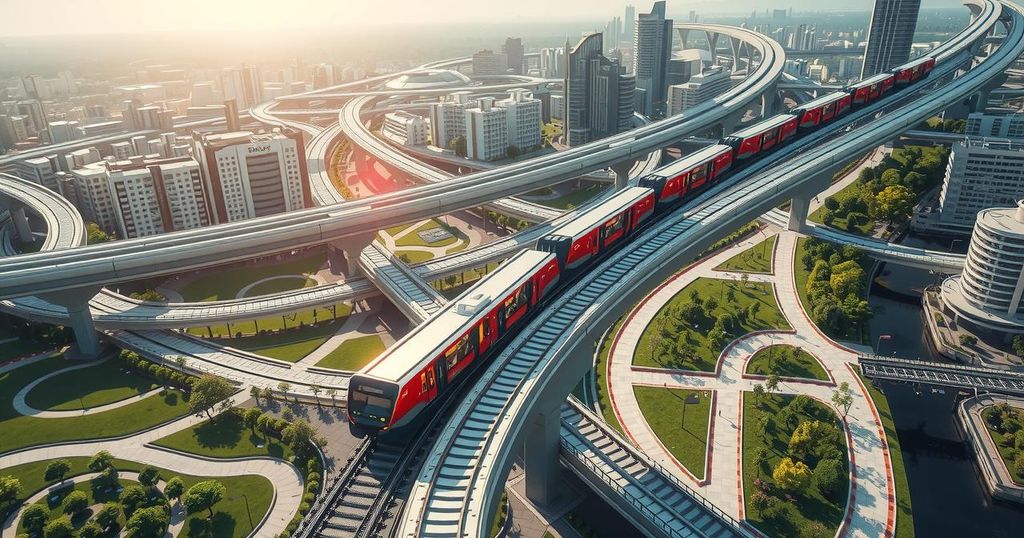Transportation Secretary Vince Dizon aims to expedite mass transit projects through increased public-private partnerships. Despite some progress, the Philippines lags behind neighboring countries in rail system development due to various challenges. Enhancing transportation infrastructure is vital for economic growth and public convenience, necessitating collaboration between the public sector and private investors to expedite project completion.
In a recent press briefing, newly appointed Transportation Secretary Vince Dizon expressed his commitment to expediting significant mass transit projects, particularly through increased public-private partnerships (PPPs). His comments indicate a proactive approach that aims to complete mass transit initiatives more swiftly, which is essential for both motorists and commuters. The integration of the private sector is crucial for the successful execution of large-scale public projects, highlighting its vital contribution to public benefit.
Despite notable advancements, the development of mass transit systems in the Philippines remains sluggish compared to neighboring nations. Challenges such as right of way obstacles, bureaucratic red tape, and limited funding have hindered progress. The Philippines has lagged behind in modernizing its rail systems; countries like Indonesia and Vietnam have made significant advancements.
The 2019 launch of the Jakarta Mass Rapid Transit should serve as a catalyst for the Philippines to hasten its railway projects. Observing highly efficient rail networks in cities worldwide underscores the economic benefits of reliable public transportation. An effective transport system enhances economic growth by connecting rural and urban areas and fostering job creation.
Conversely, Metro Manila faces severe traffic congestion, primarily reliant on road transport. The impact of traffic gridlock on the economy is staggering, with billions lost daily. Past solutions, including the implementation of bus lanes, have proven ineffective against the root issue of congestion, necessitating more integrated infrastructure development.
Understanding the substantial social and economic costs of infrastructure delays prompts a renewed urgency to advance mass transit projects. High mass transit initiatives are crucial for alleviating traffic congestion in Metro Manila, enhancing connectivity, and addressing public transport challenges for commuters.
The collaborative efforts of the public and private sectors have traditionally fostered national progress. As economic demands increase, the acceleration of transportation project completions, especially for rail systems, has never been more critical. Furthermore, the private sector can bring innovation and efficiency to public transportation development, necessitating a supportive regulatory environment from the government.
Developing transportation infrastructure, particularly rail systems, requires a shared commitment to ensure equitable benefits. Although the country is still far from achieving a public transport system akin to Japan or Singapore, there is hope that significant progress will be made during President Ferdinand R. Marcos Jr.’s administration. Filipino commuters deserve prompt action on these essential infrastructure projects.
The call for accelerating mass transit projects in the Philippines, led by Transportation Secretary Vince Dizon, emphasizes the urgent need for improved transportation infrastructure. By harnessing public-private partnerships, the government could significantly enhance connectivity, decongest traffic in Metro Manila, and ultimately benefit millions of commuters. Coordinated efforts between both sectors are essential to overcome existing challenges and foster economic growth through efficient public transportation systems.
Original Source: www.pna.gov.ph






